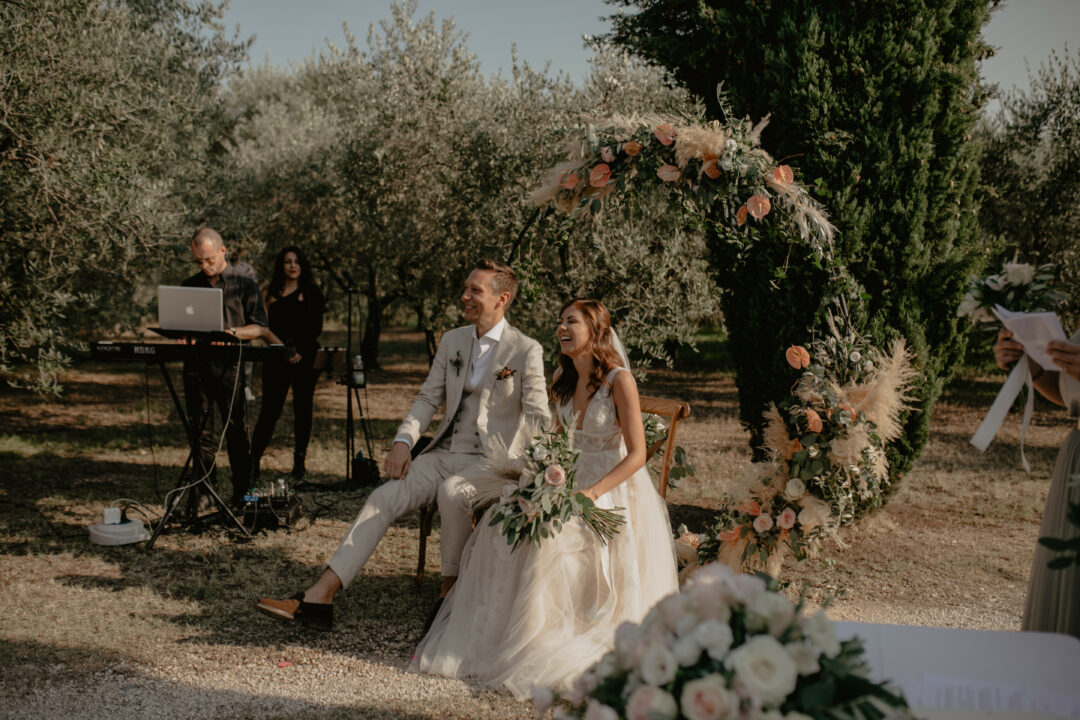How can a tourist get married in Italy? Ok, we’ve talked about wedding receptions, decorations, locations, costs… but today we’ll talk about basic stuff. I’m talking about procedures, documentation, rules and a few other boring things that, if done incorrectly, can interfere with your Italian Destination wedding and create some unnecessary worries.
You are still a tourist who wants to marry in a foreign country and there could be things that you don’t know.
So, let’s dive into it.
How long do you need to be in Italy before getting married?
This is one of the most common questions. Usually 2-3 days are enough, there are no residency requirements, but depending on your nationality and city of your marriage, you may need to be in Italy at least 10 days before getting married. If you can be in Italy once at least 3 and 6 months before the wedding, you can prepare all the paperwork then and just show up on the day of the wedding.
Both civil and religious weddings in Italy, unlike other countries in the world, must be celebrated in “comune” (town-hall) premises or at authorized churches respectively.
In Italy, lots of venues are licensed for civil ceremonies or have a private consecrated church or chapel, so you may not need to reach the town and could celebrate the ceremony directly at the Villa, Castle, Hotel or whatever is the location you chose.
If it is not possible to celebrate the ceremony at the venue, you might want to plan to have a private, legally binding ceremony in the town hall or a religious one in a church and then a symbolic ceremony (with no legal validity) with your guests at the location of the wedding reception.
Nulla Osta: the permission to proceed with your wedding
The couple will need to obtain a “NULLA OSTA” (“No Impediment”) to be able to perform a legally valid wedding in Italy. Different countries require different procedures to release this “Nulla Osta” to allow you to get married in Italy.
Generally speaking, if a wedding is celebrated according to Italian regulations, it will also be valid in your native country (provided you can bring a Nulla Osta).
Other general rules for legal wedding
- Bride and groom have to be single, legally divorced or widowed.
- Bride and groom cannot be relatives of first or second degree, not even if the relationship was by adoption.
Some rules for civil weddings
- Once all the paperwork is ready, the couple will have to meet at the commune with an interpreter a few days before the wedding.
- The ceremony lasts about 20 minutes and is performed in Italian by the Mayor or civil registrar; two witnesses over 18 years old are needed.
- On the wedding day, even if only one person among the spouses and witnesses is not fluent in Italian, an interpreter will be necessary.
Some rules for same-sex weddings
Since February 2016, same-sex couples can enter a legally binding Civil Union in Italy. The procedure is divided into two steps: before the date of the civil union ceremony is set, it is necessary to request an appointment to the Vital Records Office of the town hall where you intend to get married in Italy.
Both spouses must be present at the appointment. Between the first appointment and the civil union ceremony, there will be a gap of 30 days minimum to allow the Vital Records Office to gather additional documentation if needed.
Some rules for catholic weddings
For Catholics, the wedding is a sacrament and needs additional paperwork and time. In this case the “Nulla Osta” is created by the bishop of the area where the couple lives and is sent to the local bishop where the wedding will be held.
All the documents will have to be ready and sent to the Italian bishop at least 2-3 months before the wedding. For this reason, we suggest you start collecting information about the whole process no later than 9 months prior to the wedding.
If one of the two spouses has been married before with a Catholic or Christian celebration, Catholic wedding cannot be performed. You can only have a civil legally binding wedding or a symbolic wedding.
This was just some general information about the most popular and requested ceremonies in Italy. If you have any doubts or want to know more about protestant, jewish or other types of weddings, just contact us and we will provide all the information you need.
Elisa



